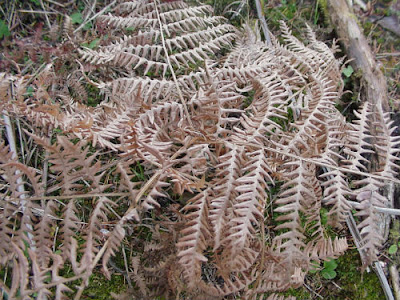 |
| Credit: jppi at morguefile.com |
Plants do not "freeze to death". Most plants die in the winter from dehydration stress. While plants need less moisture in the winter, they still need gallons of water. Snow isn't water until it melts. Couple this with harsh, cold, drying winds, and you have a recipe for disaster in your garden. Just as your skin dries out in the winter, so do your plants.
New plants are especially susceptible to winter kill. Trees under 5 years old and shrubs and perennials under two years old are considered "new". The roots of new plants are closer to the surface, in the hard freeze zone. Older plants with deeper roots find sources of moisture underground that new plants cannot.
Later fall and early winter watering is the best way to save your plants from winter kill. Heavy mulching also helps retain soil moisture and can keep roots safe from dehydration. Mulch also helps the water from the spring thaw penetrate into the ground, instead of running off.
To protect the tops of your plants during the winter, you can wrap trunks and limbs in burlap or other material to avoid dehydration from drying winter winds. There are also anti-dessicant sprays that can be used on evergreens, but they are expensive, and eventually wash off. In nature, falling leaves and needles protect the forest floors from frost. Don't ever hesitate to do the same in your garden. Using wire or other material to build a fence around your more tender plants, and filling with leaves or pine straw until they are completely covered, is an excellent winter protection. In very harsh winter climates, it is sometimes wise to build a winter shelter around and over your plants, or store them in a cold frame until spring.
In warmer southern states, building a simple shelter from poles and clear plastic sheeting can provide an effective protection against the occasional hard freeze. Always be sure to remove or open the plastic enclosure as soon as the sun comes out, to prevent burning. In warmer climes, simply covering your plants with blankets or sheets, to prevent frost from settling on and burning the foliage, can be sufficient. Professional growers regularly keep sprinklers running during a freeze to form a layer of insulating ice on crops, such as strawberries and citrus.
Lighter, friable soil rich in organic material holds moisture very well. Adding compost to the soil is a good way to not only aid moisture retention, but air retention as well, which is nearly as important.
Piling up snow around plants is a good way to insulate them and keep them safe from winter winds. While you are shoveling your walks and driveways, toss that snow over onto your plants. If this snow melts slowly in the spring, it will provide a deep watering.
Dig up tender bulbs, wrap in newspaper, and store in a cool place until spring. Dig up tender perennials and tropicals and put into pots, and bring indoors if possible.
The time and effort it takes to winterize your garden is well worth it. Taking these simple precautions will keep your garden safe and healthy during the harsh winter months, so that it can burst forth in spring and provide you with hours of joy.






